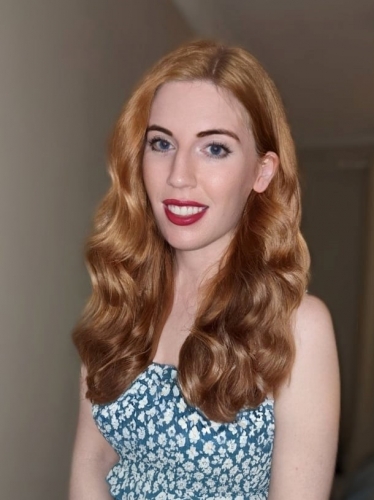For two neuro-oncology nurses, seeing the devastating impacts that brain cancer has on a person is a challenging part of their job. But being able to provide continuous, consistent care for a person from the day of their diagnosis, and helping them fulfil their end of life wishes is incredibly rewarding.
“When we first meet a patient and they’ve just been diagnosed with brain cancer, you are seeing them at a really raw time in their lives,” said neuro-oncology nurse, Emma Daly.
Subscribe for FREE to the HealthTimes magazine
“And our job is to support them from that point on, and we care for them at the end of life – until the day they die.”
“Obviously, it's a very different experience than it would be if it were someone in your personal life, but it's really rewarding to be able to support people throughout their illness and help them achieve some of the things that they want to achieve in their end of life.”
Ms Daly is the Neuro-oncology Clinical Nurse Consultant Team Leader at Cabrini, which is home to Australia’s largest private neuro-oncology service. This service extends care from hospital into the patient’s home, providing unparalleled support to patients and their families throughout illness and recovery.
FEATURED JOBS
Frontline Health Melbourne
Frontline Health Melbourne
“We’re with patients from the start, and we’re going to be with them for their whole journey.”
“Sometimes that’s for a short time, or it could be for a long time,” Ms Daly told
HealthTimes.
“We have this program where we are in people's own environment – whether it's their temporary environment in a hospital, in an outpatient environment, a rehab setting, or an aged care environment – our support changes with them.”
For Emma Reiterer, who works with Ms Daly as a Neuro-oncology Nurse at Cabrini, she has learnt to be able to deal with the death she sees in her work– and this allows her to keep on providing the care that patients need.
“I've been nursing for a long time and I've dealt with a lot of personal loss as well,” she told
HealthTimes.
“And I've learnt over time to be able to separate my own personal loss and grief from that of my patients and their families.
“When I'm with them, I'm 100 per cent with them and I'm very present,” she said.
“But when I leave those patients and families, I do recognise that what they're going through isn't really my grief.
“It's their grief, and I'm there to support them through that. I can't do my job for them if I can't keep myself together.
“I'm sad at the time, but I can't work through their grief and carry it. I've had to work through my own grief when I lost my sister when I was 25, and I think that's really taught me the importance of separating my own personal grief.”
Ms Reiterer said that knowing she’s made a difference to a person’s life, and that of their families, is of great comfort.
“The diagnosis of brain cancer impacts a person in every part of their life, so to be able to support somebody at that point, when everything that they thought they knew about their future and what was going on around them has changed instantly,” she said.
“It's rewarding to support the patient and the families in some of their hardest times, and then be an ongoing source of support for them whenever they need us.
“Is nursing my calling? I guess when you do walk away from your chosen profession and you finish your day and you say, 'I made a difference for those people and that family,' that's where you do look at what you do as a person and think yes, this is what I'm meant to be doing.”
Ms Daly said that as a specialist brain cancer nurse, she has seen just how devastating, and unpredictable the disease is due to the way it affects a person before their death.
“An illness like brain cancer is absolutely life changing. It's different to other types of terminal disease because it doesn't just take your life, but in the lead up to your life, it takes so many other things – your physical independence, intellectual independence, your cognition,” she said.
“There’s just so many losses that these people experience and it's different to other types of cancers. Obviously, other cancers can spread to the brain but even when they do, it's still different to primary brain tumours.
“Primary brain cancer really strips people back in so many ways when they are diagnosed. And it affects every person differently.”
Ms Reiterer said being a brain cancer nurse also requires flexibility and open-mindedness when it comes to navigating an unpredictable disease and complex family dynamics.
“The more I work with patients with brain tumours and their families, the more I understand that everybody is different. And brain cancer affects patients in different ways.
“There's also so many varying family dynamics so I think that nurses need to be very flexible with different personalities and different family dynamics, and to be calm and understanding of different people's wishes and be non-judgemental of what they want during a person’s end of life,” she said.
“With brain cancer, there’s many different symptoms, so the patient and their family will often have unique challenges to deal with.
“There's really not one path that we can say 'this is what's going to happen to you’,” Ms Reiterer said.
“When someone asks how long they'll live, we really don't know, and it's really hard to not be able to give people an answer, so you have to be able to work within that as a nurse.”













